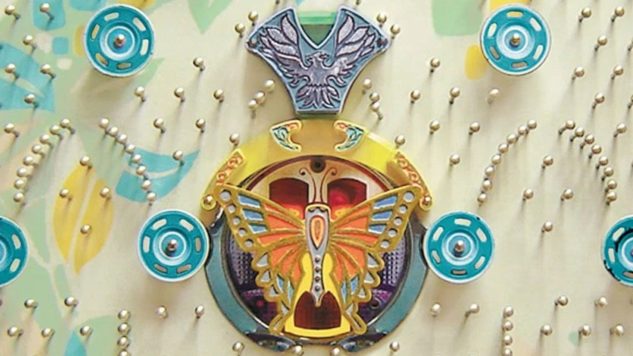In Pachinko, Min Jin Lee Traces a Korean Family’s Immigrant Experience Across Four Generations

“History has failed us, but no matter,” begins Min Jin Lee’s Pachinko.
In her much anticipated second novel, Lee traces a Korean family across four generations as they search for home. Pachinko draws inspiration from the experiences of Zainichi Koreans, the permanent, ethnic Korean residents in Japan who have ties to Korea’s colonial days. The Zainichi have faced second-class status and anti-Korean sentiment in Japan, and it’s common for individuals to hide their Korean ancestry to avoid discrimination. Historically barred from more mainstream professions, some Zainichi have achieved success by operating and owning pachinko parlors—potentially lucrative yet ignominious establishments.
Pachinko is an upright pinball game popular in Japan for both recreation and gambling. Through the curls of cigarette smoke, you’ll find rows of colorful machines in pachinko parlors, each with hundreds of glittering brass pins and a handful of payout cups that create random paths in the play field. Typically, a player rents a tray with thousands of small steel balls to load and launch into the machine. Considering its literal scattershot nature and insistence on constant betting, pachinko serves as an image for diaspora—a scattering of people from one common homeland.
 The novel’s core narrative centers on its female protagonist, Sunja (meaning “pure child” or “obedient child”), who is born into a peasant family near the Korean port city of Busan after Japan’s annexation of Korea in 1910, which ushers 40 years of colonial rule. When Sunja’s father dies, her mother takes over the family business, a modest boarding house where Sunja comes of age and runs errands for her mother. Sunja then catches the eye of Koh Hansu, a businessman from Japan, and the two become lovers. An unplanned pregnancy sets Pachinko’s dramatic gears in motion.
The novel’s core narrative centers on its female protagonist, Sunja (meaning “pure child” or “obedient child”), who is born into a peasant family near the Korean port city of Busan after Japan’s annexation of Korea in 1910, which ushers 40 years of colonial rule. When Sunja’s father dies, her mother takes over the family business, a modest boarding house where Sunja comes of age and runs errands for her mother. Sunja then catches the eye of Koh Hansu, a businessman from Japan, and the two become lovers. An unplanned pregnancy sets Pachinko’s dramatic gears in motion.
-

-

-

-

-

-

-

-

-

-

-

-

-

-

-

-

-

-

-

-

-

-

-

-

-

-

-

-

-

-

-

-

-

-

-

-

-

-

-

-








































